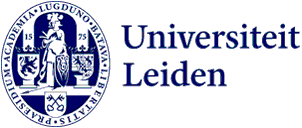
Gravitation grant for research into growing up successfully
How can young people grow up successfully and contribute to the present and future society? The consortium that is researching this will receive 22 million euros within the scope of the Gravitation programme.
The ‘Growing Up Together in Society (GUTS)’ consortium is led by Eveline Crone, Professor of Neurocognitive Developmental Psychology in Leiden and Professor of Developmental Neuroscience in Society at Erasmus University Rotterdam, and coordinated by Erasmus University Rotterdam. ‘Growing up successfully is a puzzle,’ Crone explains. ‘Research into brain development in young people is mostly individually focused. In society too, we still attach a great deal of value to individual scores, such as CITO scores [assessments of pupils’ attainment, ed.] or admission requirements. But a child does not grow up individually; it is part of systems of family, friends, school and social norms. That is why it is of great value to bring together knowledge about this.’
Interdisciplinary research
The consortium of psychologists, sociologists, child psychiatrists and neuroscientists, which also includes the University of Amsterdam, VU Amsterdam, AmsterdamUMC, Leiden University, the University of Groningen, Utrecht University, Radboud UMC Nijmegen and the Netherlands Institute for Neuroscience, has been working for five years. ‘People think interdisciplinary cooperation is easy, but you really have to learn to speak one another’s language and trust one another. That is what we have invested in and that is how you achieve breakthroughs.’
More than scores
This research really will benefit young people, says Crone. ‘The coronavirus crisis has taken its toll. Catching up isn’t enough. It’s about growing up successfully and that means more than scores alone; it’s also about well-being and your contribution to and involvement in society.’ A unique aspect is the addition of youth panels, young people themselves thinking about what is important for their generation. The research focuses on learning together in education, social networks (friendships) and young people who have been in contact with the law at an early age. There is also a focus on social inequality.
World-leading research
The Gravitation programme is implemented by the Dutch Research Council (NWO) on behalf of the Ministry of Education, Culture and Science. Seven consortiums were ultimately selected from 40 applications. The researchers from these consortiums are given ten years to conduct groundbreaking research and work together in multidisciplinary teams. Minister Robbert Dijkgraaf: ‘You need peace and quiet for world-leading research. This is a significant boost that offers long-term prospects and decent funding to excellent research groups that are collaborating together. Researchers from these scientific consortia, who are among the world’s best in their field, can use the Gravitation grant to work on groundbreaking research.’
Photo: Melissa Schriek
